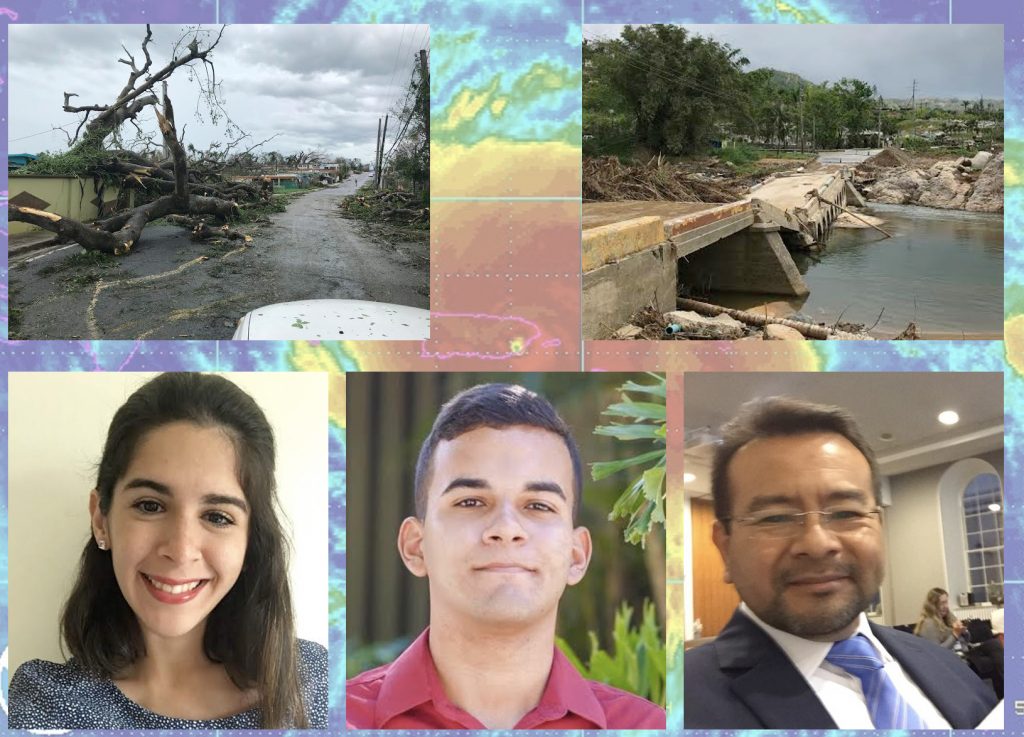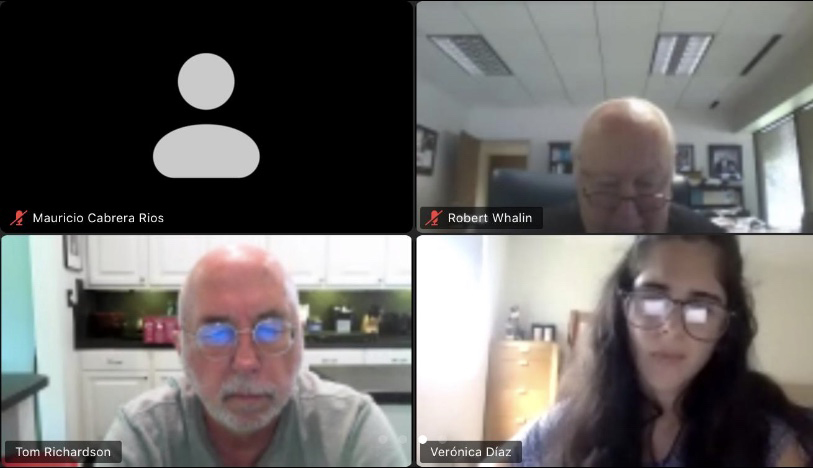
Verónica Díaz Pacheco, bottom left, was part of the UPRM team with fellow student Frederick Gonzalez-Roman and Dr. Mauricio Cabrera-Rios who worked with CRC partners at Jackson State University this past summer.
Dr. Mauricio Cabrera-Ríos of the University of Puerto Rico-Mayagüez worked with CRC Executive Director Tom Richardson and Education Director Dr. Robert Whalin of Jackson State University on a project called “Individual Emergency Response and Recovery: A learning experience from Puerto Rico’s encounter with Hurricane María,” as part of this year’s Summer Research Team (SRT) program. The program is a summer internship that provides quality research experiences to early career faculty members and students attending a Minority Serving Institution in the United States and the 16 U.S. territories.
Graduate student Verónica Díaz Pacheco, who along with Frederick Gonzalez-Roman was part of the UPRM team, wrote about her experience working with CRC researchers.
This summer, I had the amazing opportunity to participate in the Summer Research Team Program for Minority Serving institutions, held virtually for the very first time this year due to the COVID-19 pandemic. Our team, composed of Dr. Mauricio Cabrera, Frederick Gonzalez, and myself, from University of Puerto Rico at Mayagüez, all brought our best strengths and talents to tackle the problem at hand, even if we had to work remotely. Although it would have been great to see the Coastal Resilience Center in person, I must say it was an amazing experience to dedicate all my time and energy to solving a complex problem: how to make better decisions during hurricane disasters.

The UPRM team meets with CRC Executive Director Tom Richardson and Education & Workforce Director Robert Whalin over Zoom during the summer.
From day one, our objective was to use Puerto Rico’s encounter with Hurricane María as a learning experience. Having experienced Hurricane María first-hand ourselves, we knew that until support can reach you, it is individuals holding the reins of their response and recovery. For this reason, our specific goal with the project was to develop a decision support tool that could help individuals during hurricanes. The project was developed in three stages: assessing individuals’ sentiments, designing a mathematical model and creating a prototype. The tool, an inventory theory-based model of individual decision-making, provided a novel approach to the problem at hand. It was helpful to see our approach favorably viewed by professionals from other areas, because inventory models are industrial engineering methods. The result of our efforts this summer was a prototype of the tool – a mobile application coded in Microsoft Power Apps – with the capacity to work online and offline during disasters.
At a personal level, the internship provided us with a very fruitful experience, much of it stemming from our collaboration with professionals from other areas. Johany Negron and Dr. Clara Isaza, collaborators from Ponce Health Sciences University, provided us with their insights from the public health perspective. We also had the advantage of receiving feedback from valuable sources with experience with natural disasters: Dr. Robert Whalin and Thomas Richardson, our mentors at the CRC. Thanks to this project, my team and I not only developed and strengthened a set of technical and soft skills but acquired a panoramic view at how people truly felt and acted during hurricane María. As researchers, we feel proud that we were able to use the devastating experience that was María to create a tool that could help others make better decisions in the future.